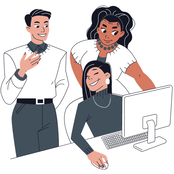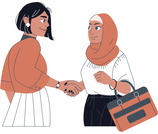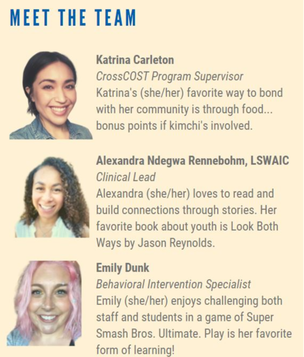

It was such a great experience that later that week I went out to dinner again and I very confidently sat down, opened the wine menu, and was ready for another amazing wine experience. The waiter came over and asked what kind of wine I liked and for the life of me, I couldn’t remember what I had with my last meal! I tried to describe it but all I could come up with was "red" and "very tasty." The waiter began to ask questions to see if they could figure it out. They asked what food I was eating with it and more. Was it sweet? What protein did I have? Tannins, full-bodied... Do these words sound familiar? They took the time to work with me and be curious about what I was looking for. We came to a decision and they brought out a delicious red that, once again, went perfectly with my meal.




So what is CrossCOST? In formal terms, we are a team of behavioral, clinical, and school-systems minded specialists who coordinate services to support schools with UE as our philosophy of change. And in informal terms, we’re just your friendly neighborhood waiters. So, what’ll it be? A glass of red or white? 😉



 RSS Feed
RSS Feed